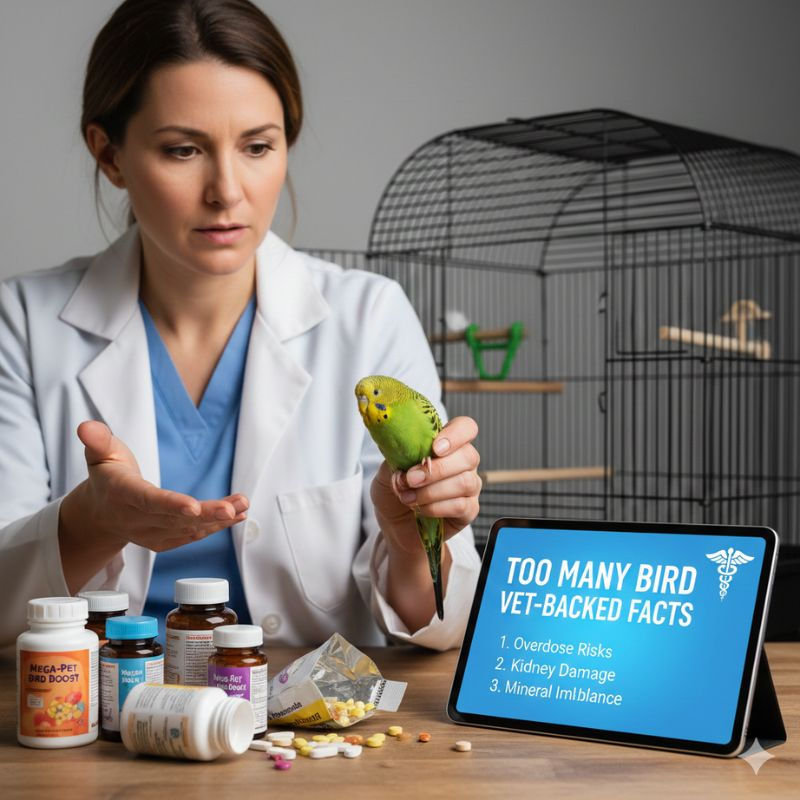What Do Birds Eat? A Comprehensive Guide to Bird Food
- petperchlove
- Mar 31, 2025
- 3 min read

Birds are fascinating creatures with diverse dietary needs. Whether you're an avid birdwatcher, a pet bird owner, or someone interested in providing food for wild birds, understanding what birds eat is essential. The right bird food ensures their well-being, supports their health, and helps them thrive in their natural habitat or as pets.
In this guide, we'll explore the different types of bird diets, recommended pet bird food, and essential bird supplies for feeding birds.
Types of Bird Diets
Birds have different dietary requirements based on their species. Their diets can be classified into the following categories:
1. Granivorous Birds (Seed-Eaters)
Granivorous birds primarily feed on seeds, grains, and nuts. Some common granivorous birds include finches, sparrows, pigeons, and doves.
Best Bird Food for Granivorous Birds:
Sunflower seeds
Millet
Safflower seeds
Nyjer seeds
Cracked corn
2. Frugivorous Birds (Fruit-Eaters)
Birds like toucans, parrots, and orioles thrive on a fruit-based diet. They play an important role in seed dispersal in the wild.
Best Fruits for Frugivorous Birds:
Apples
Bananas
Berries
Grapes
Mangoes
3. Insectivorous Birds (Insect-Eaters)
Insectivorous birds rely on insects as their primary food source. This category includes swallows, bluebirds, and warblers.
Common Insects for Insectivorous Birds:
Mealworms
Crickets
Grasshoppers
Ants
Beetles
4. Nectarivorous Birds (Nectar-Eaters)
Hummingbirds, sunbirds, and honeyeaters consume nectar from flowers.
Best Nectar Sources:
Homemade sugar water (1 part sugar to 4 parts water, boiled and cooled)
Commercial nectar solutions
Natural flower nectar
5. Omnivorous Birds (Mixed Diet)
Some birds, like crows, magpies, and robins, eat a combination of seeds, fruits, insects, and even small vertebrates.
Recommended Omnivorous Bird Diet:
A mix of fruits and seeds
Insects like mealworms
Small pieces of meat
Choosing the Right Pet Bird Food
If you own a pet bird, selecting the right pet bird food is crucial for its health and longevity. Here are some diet recommendations for popular pet birds:
Parrots and Parakeets:
Pelleted bird food with essential nutrients
Fresh fruits and vegetables (carrots, bell peppers, apples, etc.)
Nuts (in moderation)
Cooked grains like rice and quinoa
Canaries and Finches:
Canary or finch seed mix
Fresh greens (lettuce, spinach, dandelion leaves)
Egg food for extra protein
Budgerigars (Budgies):
High-quality seed mix
Leafy greens and fresh fruits
Cuttlebone for calcium
A balanced diet is key to maintaining a bird’s immune system and overall health. Always consult an avian veterinarian for specific dietary recommendations.
Essential Bird Supplies for Feeding
When feeding birds, having the right bird supplies is just as important as the food itself. Here are some must-have supplies for bird feeding:
For Wild Birds:
Bird feeders (tube feeders, hopper feeders, suet feeders)
Bird baths for hydration
Nesting boxes to provide shelter
For Pet Birds:
Food and water dishes (preferably stainless steel)
Cage liners for hygiene
Cuttlebones and mineral blocks for beak health
Investing in high-quality bird supplies ensures that birds have a safe and nutritious feeding environment.
Final Thoughts
Understanding what do birds eat is essential for their health and well-being. Whether you’re feeding wild birds or taking care of a pet bird, providing the right bird food and necessary bird supplies ensures they receive proper nutrition. A well-balanced diet leads to happier, healthier birds that can live longer and thrive in their environment.
If you have a pet bird, always choose high-quality pet bird food and consult an avian expert for the best dietary recommendations. And for those feeding wild birds, providing a variety of foods in appropriate feeders can attract a diverse range of bird species to your backyard!
FAQs
1. Can birds eat human food?
Some human foods, such as fruits, vegetables, and cooked grains, are safe for birds. However, avoid feeding them chocolate, caffeine, avocado, and salty foods, as these can be toxic.
2. What should I feed my pet bird daily?
A pet bird's diet should include high-quality pellets, fresh fruits and vegetables, and a small amount of seeds or nuts. Fresh water should always be available.
3. Do birds need supplements?
Some pet birds may require vitamin and calcium supplements, especially if they do not get enough nutrients from their diet. Consult an avian vet for advice.
4. How often should I clean my bird's food and water dishes?
Bird food and water dishes should be cleaned daily to prevent bacteria buildup and ensure the bird’s health.
5. What is the best bird food for winter?
During winter, high-energy foods like suet, sunflower seeds, and peanuts help wild birds stay warm and energized.



Comments